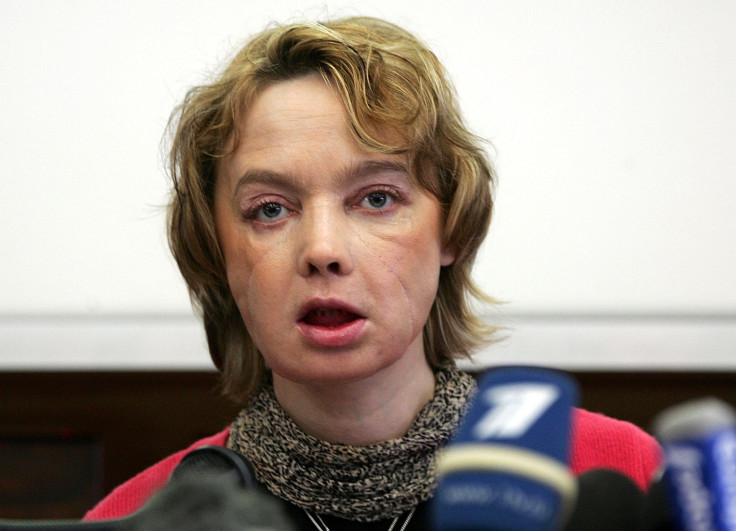Who Is Isabelle Dinoire? First Face Transplant Recipient Dies Of Cancer Caused By Anti-Rejection Drugs

The first face transplant recipient in the world, a Frenchwoman named Isabelle Dinoire, passed away in April after a long battle with cancer. Dinoire, who was 38 at the time, received the transplant after being mauled by her own dog. But after Dinoire’s body rejected the transplant in 2015, she began taking anti-rejection drugs that left her susceptible to an unspecified cancer, the BBC reported.
The mother of two was given a new nose, mouth, and chin, but the heavy use of immunosuppressant drugs, which are designed to stop the body from recognizing the grafts as dangerous foreign invaders, made her susceptible to disease. Eventually, Dinoire died at 49 from complications resulting from her most recent operation to regain the use of her lips. The hospital delayed announcing Dinoire’s death as a courtesy to her and her family, who wished for privacy.
Anti-rejection medications are the most important step in maintaining health after transplants. The drugs help prevent tissue and organ rejection, but recipients must rely on them for the rest of their lives. But according to the University of Michigan Health System, there is an increased risk of infection and cancer in transplant recipients because the drugs lower the immune system’s ability to fight off any disease. Cancers, such as skin, female genital cancers, and lymphoma are more common among those taking anti-rejection medications.
Despite the tragedy of Dinoire’s death, the unprecedented operation opened up doors for other transplants that hadn’t otherwise been attempted. The surgery had originally been a controversial feat because the face is seen as a part of another person’s identity unlike the internal transplants of kidneys, livers, and even hearts. The groundbreaking surgery was led by world-renowned surgeon Jean-Michel Dubernard at Edouard Herriot hospital where the transplant took place.
Instead of attempting reconstructive face surgery, Dr. Dubernard turned to the extreme measures of a face transplant because of the extent of Dinoire’s disfigurement. Since 2005, face transplants have been performed successfully throughout the world, in various countries, including the United Sates, Spain, Turkey, and China. But now the long-term benefits of face transplants are being questioned because recipients tend to have more difficulty with anti-rejection medications compared to other skin graft and organ donor recipients.
Published by Medicaldaily.com



























